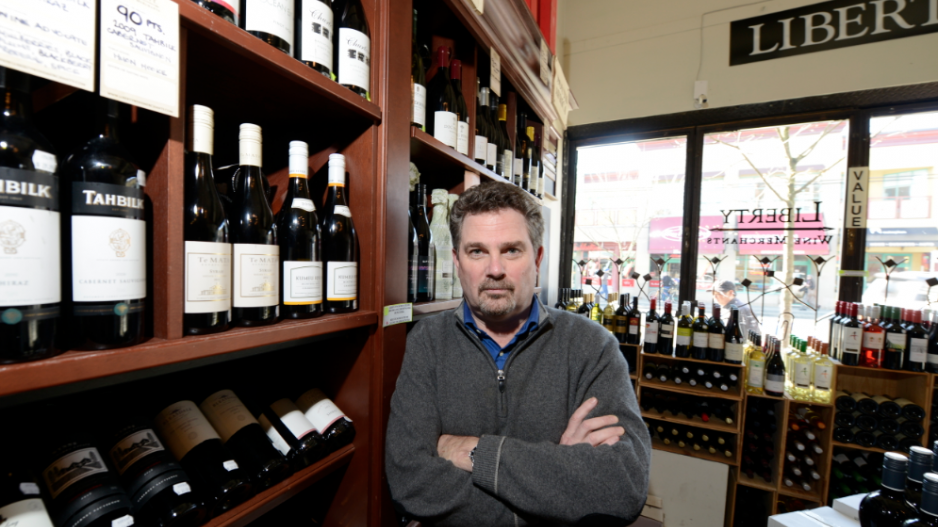The B.C. government announced June 23 that alcohol retailers are now able to charge for samples of their products and to provide larger samples than ever before.
“It’s a real baby, baby step but it’s in the right direction,” said Liberty Wine Merchants owner Robert Simpson, who lobbied for the change.
“We might open a more expensive wine and charge for it. That way we recover the cost and the customer doesn’t have to risk the full price of a bottle.”
Alcohol retailers are now able to provide samples up to 75 ml, which is triple the previous maximum size of 25 ml.
To keep the stores from becoming like bars, they will only be able to give each customer a maximum of 75 ml per day. That’s a restriction that Simpson thinks is a bit cautious and Marquis Wine Cellars owner John Clerides called “ridiculous.”
The new rules allow alcohol retailers to split that 75 ml daily limit for samples into smaller units but both Clerides and Simpson argued that some wines require a 75 ml sample to be appreciated and that customers should be able to have more than one of those samples so they can select the wine that they prefer.
The previous 25 ml maximum sample size was OK for ports or sherries, Simpson said, but it was too small for a customer to get a sense of what a low-alcohol Riesling might taste like.
“People need to try wine,” Clerides said.
“If you walk into a clothing store, you can try on a suit or a pair of shoes. You can put on a shirt. In the wine business, … at the end of the day, tasting it is the No. 1 thing to convince someone to buy.”
Both Simpson and Clerides plan to continue giving some free samples but they both like the option to charge for samples when the wine is expensive.
And, while Simpson said he is unlikely to buy a sample-vending machine, because the capital cost would be thousands of dollars, Clerides has already shelled out for a 16-bottle sample dispenser that he has so far used to give free samples.
Finally, another small tweak to B.C.'s liquor regulations is that wine, beer and spirit retailers are now able to have two manufacturers or agents in their stores at the same time.




